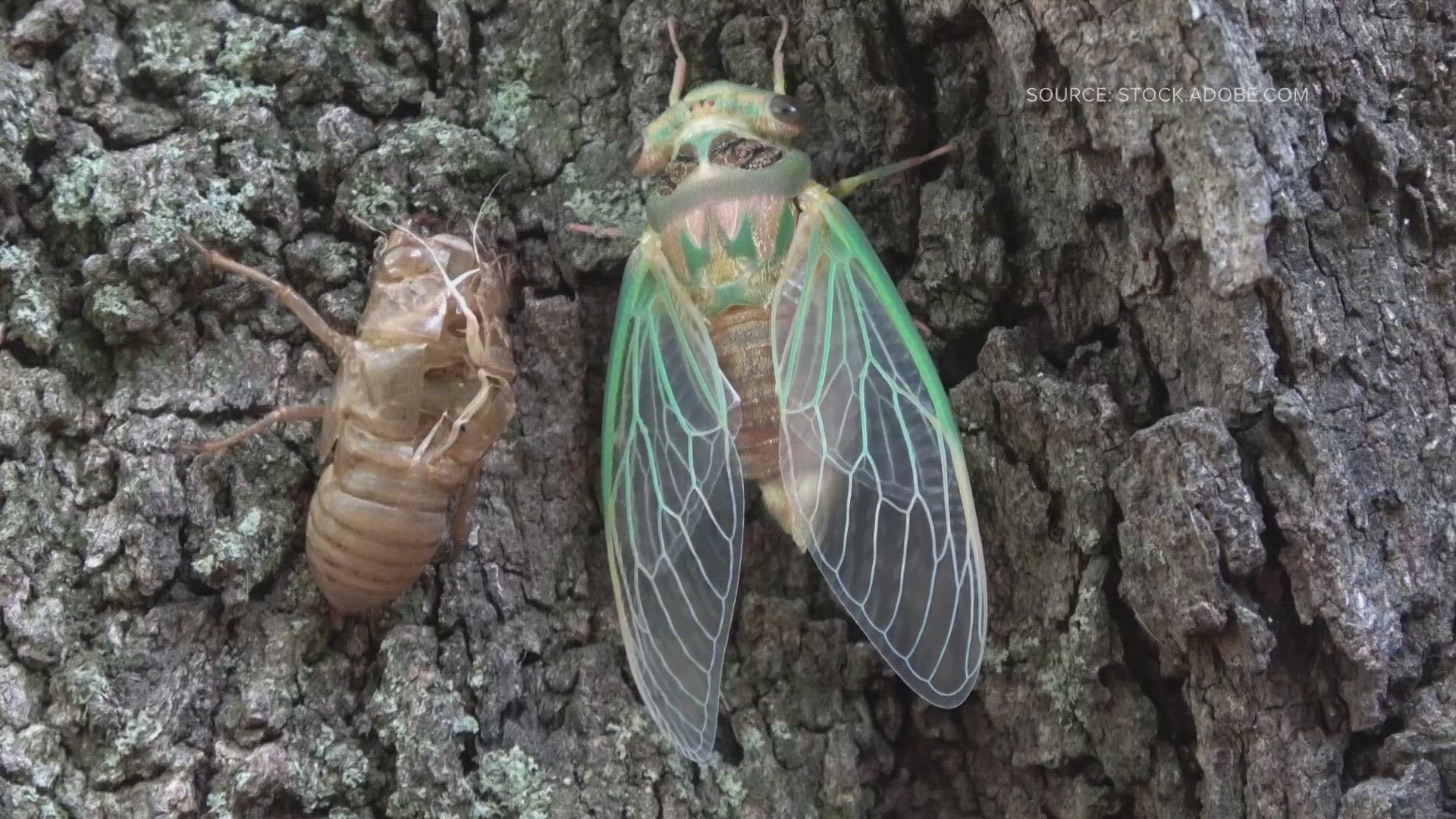GREENSBORO, N.C. — Billions of cicadas will emerge from the ground all across the country, creating a once-in-a-lifetime event come May or when the ground reaches 64 degrees.
Two experts explained what we can expect to see here in the Triad.
Two large broods of cicadas in the Midwest and in the Southeast are set to make their way out of the ground this summer. This is quite a rare experience, as the last time this happened was over 200 years ago.
But the thing is, North Carolinians are not new to seeing cicadas around this time of year because annual cicadas make their way out of the ground around this time every year.
While annual cicadas are greener in color, the rare 13-year and 17-year broods of cicadas coming out this year are blacker and orange in color. These are called periodic cicadas.
"We have other cicadas every year, like the little green ones and people see them on the side of their house when they molt. So, we have them every year and you hear them in the late summer and afternoons and stuff like that, but this year, the biggest difference that people are going to see are the volume of them, they're going to see a lot more of the cicadas," Owner of Pineland Pest Control, Jordan Myers said.
Cicadas that have been in the ground for 13 and 17 years will be coming up at the same time this year but not in the same locations. Here in North Carolina, we will only see the 13-year brood.
RELATED: Invaders from underground are coming in cicada-geddon. It's the biggest bug emergence in centuries
"There are different broods or hatchings of them that happen every year but also every 13 years and every 17 years. Those are prime numbers; we love to science it up here, and if you multiply 13 by 17, the two converge every 221 years; that hasn't happened since 1803,"
Not only can cicadas be scary looking, but they can also be loud, creating a constant buzzing. While it sounds like a bunch of noise to humans, it's the mating calls of the adult male cicadas, who only have four to six weeks to live and reproduce before they die.
Experts said not to worry; there's no way these bugs can hurt you or your lawn.
On a lighter note, Regester said they are the quintessential sound of summer, that's another reason not to get rid of them, "remember they are lovers, not biters, they are coming up in that nymph form to shed that exoskeleton into their adult form, to find a mate, to lay eggs in the tree twigs and then the adults die, so they have a four to six week life period, they're not harmful."
Instead of trying to get rid of the bug with insecticides or repellants, both experts agreed that you should take a gentler approach by simply moving the bugs out of the way without killing them.
"If you see a bunch of them, just kind of take the leaf blower or broom and just sweep them out into the grass, cause some people may have a lot on their driveway, so you're running over them so that would be our biggest suggestion, just tell folks like, 'hey, let's sweep these out,' let's just get them out of the driveway so you're not having a bunch of them and running them over on the driveway," Myers said.
One of the main reasons why it's best not to kill cicadas is that they provide so much food for other animals that are higher in the food chain. Plus, as mentioned earlier, they are only temporary pests with four to six weeks of life.

